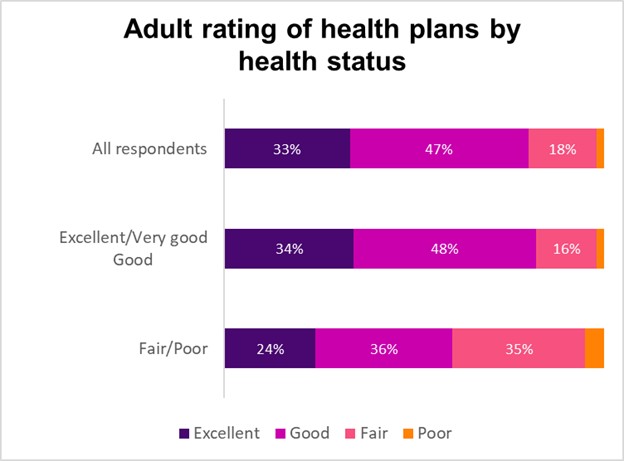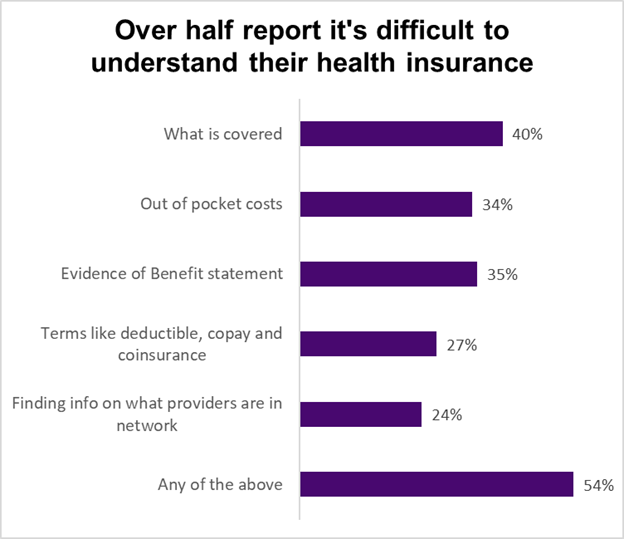Members have serious problems navigating their health plan coverage
June 26, 2023
Employers spend almost a billion dollars annually on employer sponsored health insurance, but employee experience with health plans is remains disappointing. KFF (formerly Kaiser Family Foundation) surveyed almost 1000 adults with employer-sponsored health plans and found a shocking number of members rated their health plans poorly, complained of not having access to the care that they needed, and said they didn’t get access to services that they needed. The KFF survey also included 800-900 members of exchange, Medicare and Medicaid plans, but I’m focusing on those in employer-sponsored health plans.
All in, only a third (33%) rated their health plan as “excellent.” Fewer than a quarter (24%) of those who described themselves as in fair or poor health said their health plan was “excellent” and over a third (35%) said their health plan was “poor.” That’s especially disconcerting since those who use health plans the most are the most dissatisfied.
Source: KFF, June 15, 2023 LINK
Here’s a summary of the findings on reported difficulties with health plans:
Source: KFF, June 15, 2023 LINK
And here’s a chart demonstrating poor understanding of health plans by those in employer-sponsored plans:
Source: KFF, June 15, 2023 LINK
Finally, it’s no surprise that those with the lowest income had the most difficulty paying medical bills. One in 11 respondents with income over 400% of the federal poverty level (Income of about $120,000 for a family of four) reported trouble paying their medical bills, too
.
Source: KFF, June 15, 2023 LINK *FPL is federal poverty level
Here are a few other important findings:
● 28% reported that they paid more than they expected.
● 10% of insured adults said that the mental health therapist or treatment they needed was not covered by their health plan.
● 43% of those who said their mental health was fair or poor said their plan had poor access to providers.
● 10% of all adults said they experienced a significant delay in health care due to insurance problems, and another 10% said they were unable to receive recommended care at all due to insurance problems.
● 9% of all adults said they experienced a decline in health status due to insurance problems.
Implications for employers:
- The current health care payment system is complicated enough that even health policy experts often have trouble fully understanding it, so efforts to simplify health care from a member perspective would likely be welcome.
- Absent simplification, this survey demonstrates that members could benefit from navigation assistance.
- Employers can better communicate with employees about their benefits.
- Current health plans are often not meeting the needs of their members.
- Transparency initiatives could eventually help lift the cloak of secrecy over medical prices, but the data available to members now is inadequate.
Tomorrow - a handful of recent research reports with implications for employers





Thanks Jeanne. Agree entirely. Employers choose health plan design for over z60% with employer sponsored health plans in self insured plans. Health care need not be free, but out of pocket costs should be comprehensible and should not lead patients to financial ruin
For the self insured plans many of these “problems” are due to employer decisions. The healthplan is merely administering the provisions. The concept that all healthcare should be free needs to be changed as well